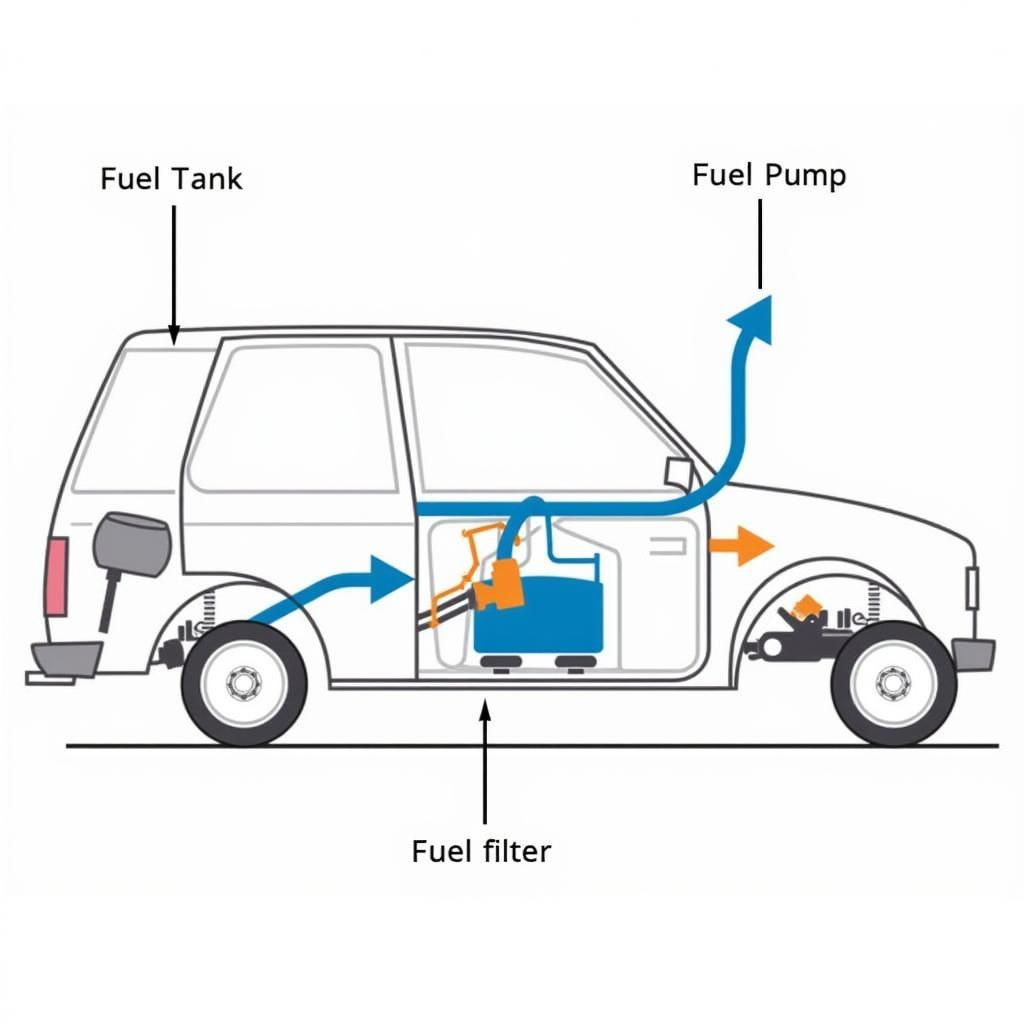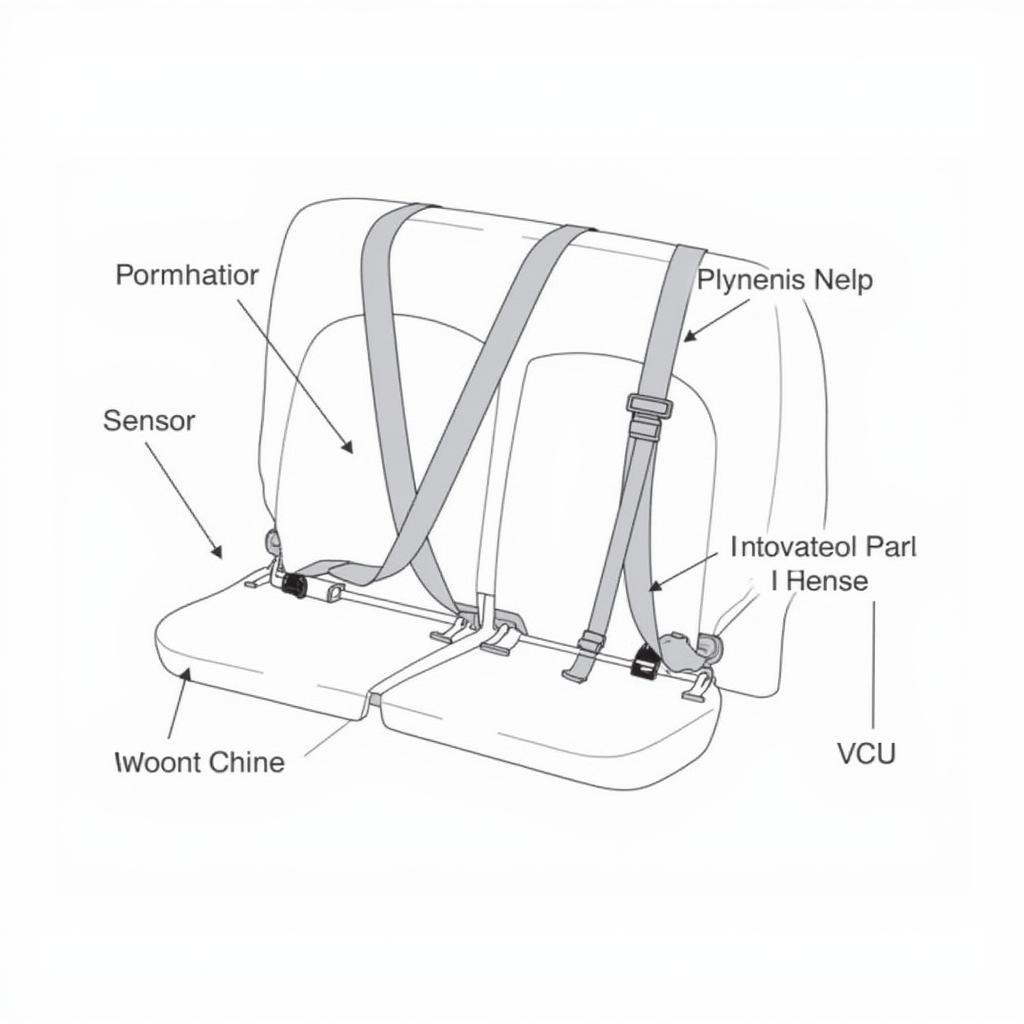Your car won’t start, but the battery seems fine. This is a frustratingly common scenario, and while a good battery is essential, it’s only one piece of the puzzle. This guide dives into the potential culprits behind your car starting problems when the battery isn’t to blame, offering diagnostic tips and potential solutions to get you back on the road.
Why is My Car Not Starting Even with a Good Battery?
Several factors can prevent your car from starting even if the battery is fully charged. These range from simple issues like a faulty ignition switch to more complex problems with the fuel system or the starter motor. Identifying the root cause is crucial for effective troubleshooting.
Common Culprits When Your Car Won’t Start
Fuel System Issues
- Empty Fuel Tank: It seems obvious, but it happens! Before diving into complex diagnostics, ensure you have enough fuel.
- Clogged Fuel Filter: A dirty fuel filter restricts fuel flow to the engine. This can cause starting problems, especially after long periods of inactivity.
- Faulty Fuel Pump: The fuel pump delivers fuel from the tank to the engine. If it’s malfunctioning, the engine won’t receive the necessary fuel to ignite.
- Fuel Injectors: These deliver fuel directly into the engine cylinders. Clogged or failing injectors can prevent proper fuel delivery, hindering the starting process.
 Car Fuel System Components: Fuel Tank, Pump, Filter, and Injectors
Car Fuel System Components: Fuel Tank, Pump, Filter, and Injectors
Ignition System Problems
- Faulty Ignition Switch: The ignition switch provides power to various engine components when you turn the key. A malfunctioning switch can prevent the starter motor from engaging.
- Bad Starter Motor: The starter motor cranks the engine to initiate the combustion process. A faulty starter is a common reason for cars not starting. You might hear a clicking sound when you turn the key.
- Ignition Coil: This component provides high voltage to the spark plugs, igniting the air-fuel mixture. A faulty coil can prevent the engine from firing.
- Spark Plugs: These deliver the spark that ignites the fuel. Worn or fouled spark plugs can prevent proper combustion and lead to starting issues.
Other Potential Issues
- Security System Malfunction: The car’s anti-theft system can sometimes prevent the engine from starting if it malfunctions. Try using a different key or check your car’s alarm system.
- Electrical Problems: Loose or corroded wiring can disrupt the flow of electricity to critical engine components.
- Sensor Issues: Modern cars rely on various sensors to control engine functions. A faulty sensor can send incorrect signals to the engine control unit (ECU), preventing the engine from starting.
- ECU Problems: In rare cases, the engine control unit itself can malfunction, preventing the engine from starting.
What to Do When Your Car Won’t Start: A Step-by-Step Guide
- Check the Battery: While you believe the battery is good, double-check connections for corrosion or looseness.
- Listen for the Starter: When you turn the key, do you hear a clicking sound? This could indicate a starter motor issue.
- Check the Fuel Gauge: Make sure you haven’t run out of gas.
- Inspect the Fuel Filter: A visibly dirty or clogged fuel filter needs replacement.
- Check for Spark: Remove a spark plug and observe it while cranking the engine to see if there’s a spark.
- Try a Jump Start (Cautiously): If the engine cranks but doesn’t start, trying a jump start might help diagnose fuel or ignition issues. However, if the issue is electrical, a jump start could worsen the problem.
Remote Diagnostics and Software Solutions
In today’s connected world, remote diagnostics and software updates can address certain car starting issues. Some vehicles allow mechanics to perform diagnostic scans and even software installations remotely, potentially fixing software glitches or sensor problems without a physical visit.
“Remote diagnostics is a game-changer in automotive repair. We can often diagnose and even fix problems without the customer needing to bring the car in.” – John Smith, Automotive Diagnostics Specialist at Advanced Auto Solutions.
Conclusion
A car that won’t start even with a good battery can be caused by various issues, from simple fuel problems to complex electrical malfunctions. By systematically checking the key systems and using the troubleshooting steps provided, you can often pinpoint the problem. Remember, remote diagnostics and software solutions are becoming increasingly prevalent, offering convenient and efficient ways to address certain car starting issues. If you are unsure about any of these steps, consulting a qualified mechanic is always recommended.
FAQ
- Could a bad alternator cause my car not to start even with a good battery? Yes, a failing alternator won’t recharge the battery, eventually leading to a no-start condition even if the battery currently has some charge.
- Can extreme cold weather prevent my car from starting? Yes, cold weather can thicken engine oil and make it harder for the engine to turn over.
- What does a clicking sound when I turn the key indicate? This often indicates a problem with the starter motor or a weak battery connection.
- How often should I replace my fuel filter? Generally, every 20,000-30,000 miles, but consult your car’s owner’s manual.
- Can a faulty sensor prevent my car from starting? Yes, certain sensors, like the crankshaft position sensor, are critical for engine operation and can prevent starting if they malfunction.
- Is it safe to jump start a car with a completely dead battery? Yes, but it’s important to follow safety procedures and ensure the cables are connected correctly to avoid damage to the electrical system.
- How can remote diagnostics help with a car not starting issue? Remote diagnostics can help identify software glitches, sensor problems, and other electronic issues that may be preventing the car from starting.

